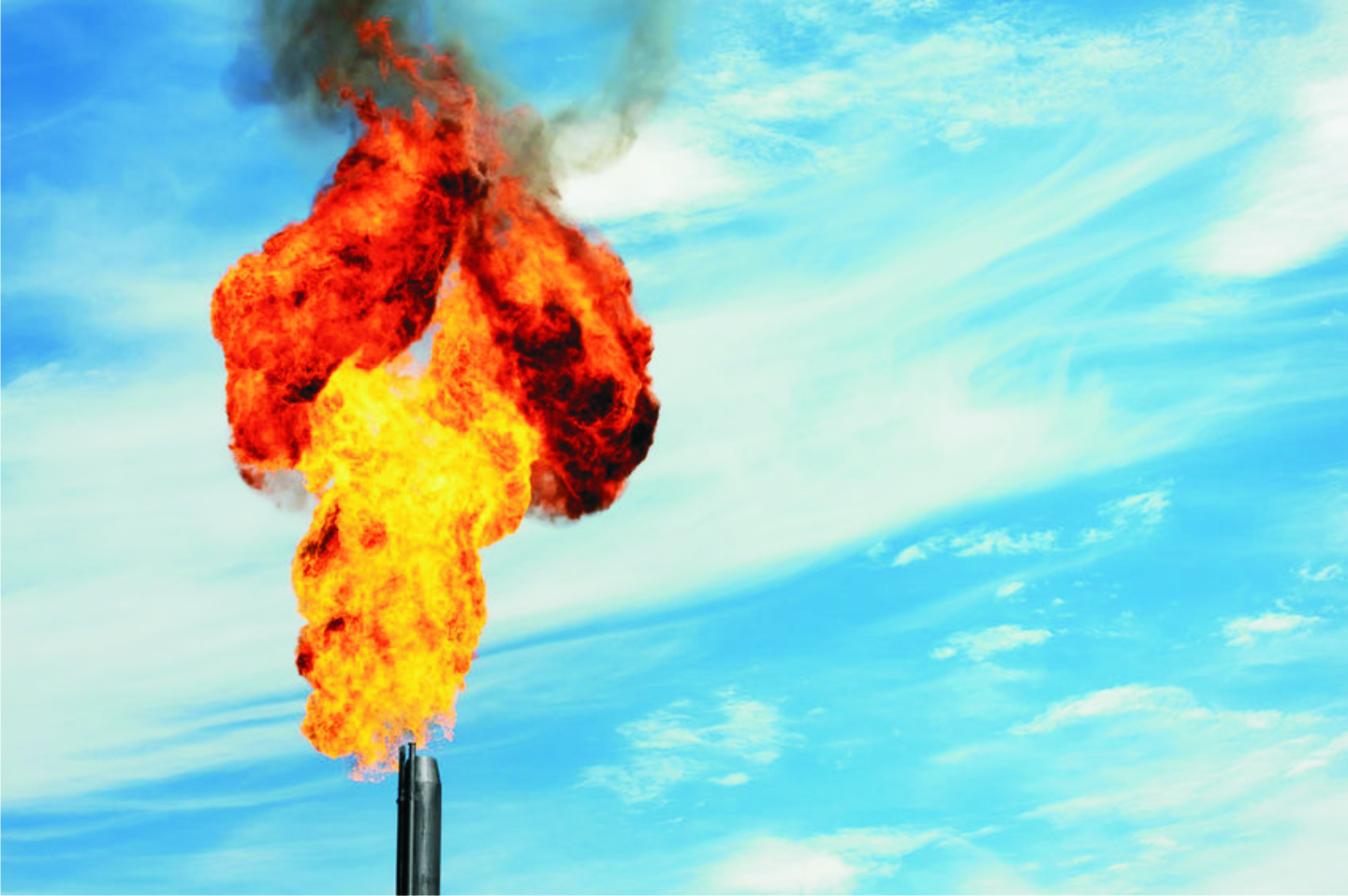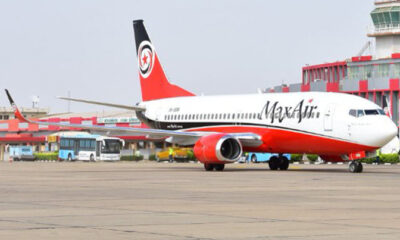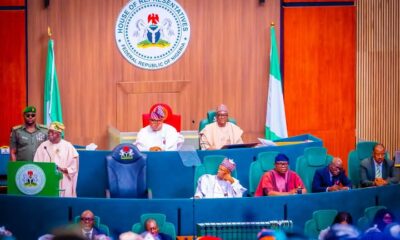Oil & Energy
Why Washington Needs Friendlier Approach To Major Gas Producer

In September, a bipartisan group of United States Representatives called on the United States Secretary of State to impose sanctions on the People’s Democratic Republic of Algeria, claiming that a $7 billion arms deal with Russia violated the 2017 Countering America’s Adversaries Through Sanctions Act (CAATSA).
The group’s action followed a similar initiative by Senator Marco Rubio, also in September. Why Algeria, and why now?
Algeria is a former French colony and a major oil and natural gas producer that exports 85% of its gas to Europe. The country charts an independent course, doesn’t meddle in local affairs, and has close ties to Russia and China.
Algeria is a harsh critic of Israel, opposed the U.S. invasion of Iraq in 2003 and 2011 NATO intervention in Libya, decried the Abraham Accords, which recognized neighboring Morocco’s claim to the Western Sahara, and maintains relations with the Assad government in Syria.
Algeria fought two wars of independence: the 1954-1962 war against the French colonizers, and the 1991-2002 war against the Islamists, led by the Armed Islamic Group.
According to the U.S. Congressional Research Service, “Algeria has the world’s 11th – and 16th -largest proven reserves of natural gas and oil, respectively, and was the 10th-largest natural gas producer as of 2019. It is also estimated to have the world’s 3rd -largest recoverable shale gas reserves.”
Algeria has the fourth-largest economy in Africa with a 2021 GDP of $167.98 billion. Oil and gas income increased by 70% in the first half of 2022, and energy income is expected to total $50 billion by the end of the year.
The World Bank reported that Algeria’s economy “expanded by 3.9% year-on-year during the first nine months of 2021, after contracting by 5.5% in 2020,” largely due to increased European gas demand.
Hydrocarbons account for 95 percent of export revenues and about 40 percent of government income.
State-owned enterprises reportedly comprise over half the formal economy, and are a drag on growth, but the private sector is hoping the government stays the course on reforms to attract foreign direct investment (FDI) to the non-energy sector, and doesn’t backslide due to increasing hydrocarbon revenues.
The government has an uphill climb as Algeria ranks 157 of 190 in the most recent World Bank ease of doing business ranking, and it will be challenging to advance as it recovers from the pandemic
The plan to attract FDI to grow the non-energy sector is needed to cope with a rising unemployment rate, and a dangerously high youth unemployment rate of almost 32%.
The plan eliminates the “51/49” requirement for majority Algerian ownership of new businesses, though it remains for “strategic sectors,” that is energy, mining, defense, transportation infrastructure, and pharmaceuticals manufacturing
Key is the government not trying to “buy social peace” via social security payments, while oil and gas prices are high, as eventually prices will come down and angry youth without jobs may foreclose temporizing options for the government and force a new government, hopefully nonviolently.
Algeria’s relationship with the U.S. got off to a slow start in the 1960s but has generally been positive. In the 1950s, the Truman and Eisenhower administrations supported France in Algeria, but President Kennedy endorsed Algerian independence.
Algeria mediated negotiations between the U.S. and Iran that resulted in the freeing of the 52 American hostages after 444 days in captivity. Algeria also offered support to the U.S. in the wake of 9/11 and cooperated in counterterrorism operations, even offering the U.S. use of an airfield in the country – a major concession.
So, then, why the agita about Algiers?
America’s “You are either with us, or with the terrorists” mentality fails to take account of past cooperation and positive relations. Washington is apparently unable to believe a nation may prefer to look after its own interests first and sees any reluctance to place oneself in thrall to America as siding with the enemy du jour.
For example, the Pentagon failed to recruit Vietnam as a military ally against China, forgetting, or choosing to ignore, that Vietnam’s recent fights for liberation, first from France, then from America, might incline the country against military alliances, especially with the guys it defeated.
More recently, the Minister for Foreign Affairs of Singapore, speaking on behalf of ASEAN about the U.S and China, declared, “We are not interested in dividing lines in Asia. Don’t make us choose. We will refuse to choose.”
Even close friends of Washington are seeing the value of belonging to a forum independent of the Americans: the BRICS (Brazil-Russia-India-China-South Africa) group may soon welcome Argentina and Iran which have applied to join, and Egypt, Saudi Arabia and NATO member, Turkey, have expressed interest. (Algeria has formally applied to join the bloc.)
One observer noted that BRICS may become the “world’s commodity alliance” with China as the manufacturing center and India as the service center.
So, who are the U.S. congressmen working for?
They may have a legitimate concern about the revenue Russia is getting from Algeria, though a $7 billion dollar arms deal pales next to the unlimited cash Washington is handing Kyiv.
It could be they are promoting U.S. defense contractors to capture Algerian sales, though expecting Algiers to junk its entire Russian-supplied inventory is the same wishful thinking that decided that Vietnam would be a U.S. ally against neighboring China.
Algeria’s relations with Moscow go back to the 1950s when the Soviet Union provided assistance to Algeria in its war for independence, and, in 1960, the Soviets were the first to recognize the Provisional Government of the Algerian Republic.
Algeria no doubt noted that the U.S. recently threatened to cut off Saudi Arabia, its biggest weapons customer, when it disagreed with its tactics in Yemen. And in 2013, Washington slowed down the delivery of helicopters to the Egyptian military government that ousted the Muslim Brotherhood government headed by Mohamed Morsi.
So, they must be thinking in the El Mouradia Palace, If this is how the Americans treat their friends…
The U.S. politicians may think they are defending Israel, though Algeria’s advocacy of the Palestinian cause isn’t news in Jerusalem.
At the recent Arab League summit, hosted by Algeria and the first since Israel normalized relations with several league members, Algeria brokered a reconciliation deal between rival Palestinian factions Fatah and Hamas.
The reconciliation may not last, and Algeria won’t offer material support, i.e., weapons, to the Palestinian fighters, so it may have been an exercise in virtue signaling to the eventual winner of the then-ongoing contest for control of the government in Jerusalem.
Hopefully, cooler heads will prevail and Washington won’t alienate a country with which the European Union seeks a “long-term strategic partnership” for natural gas and electricity. And France is seeking to repair relations via economic cooperation, though China is now Algeria’s biggest trade partner.
By: James Durso
Durso reports for oilprice.com.
Oil & Energy
FG Woos IOCs On Energy Growth
The Federal Government has expressed optimism in attracting more investments by International Oil Companies (IOCs) into Nigeria to foster growth and sustainability in the energy sector.
This is as some IOCs, particularly Shell and TotalEnergies, had announced plans to divest some of their assets from the country.
Recall that Shell in January, 2024 had said it would sell the Shell Petroleum Development Company of Nigeria Limited (SPDC) to Renaissance.
According to the Minister of State for Petroleum Resources (Oil), Heineken Lokpobiri, increasing investments by IOCs as well as boosting crude production to enhancing Nigeria’s position as a leading player in the global energy market, are the key objectives of the Government.
Lokpobiri emphasized the Ministry’s willingness to collaborate with State Governments, particularly Bayelsa State, in advancing energy sector transformation efforts.
The Minister, who stressed the importance of cooperation in achieving shared goals said, “we are open to partnerships with Bayelsa State Government for mutual progress”.
In response to Governor Douye Diri’s appeal for Ministry intervention in restoring the Atala Oil Field belonging to Bayelsa State, the Minister assured prompt attention to the matter.
He said, “We will look into the issue promptly and ensure fairness and equity in addressing state concerns”.
Lokpobiri explained that the Bayelsa State Governor, Douyi Diri’s visit reaffirmed the commitment of both the Federal and State Government’s readiness to work together towards a sustainable, inclusive, and prosperous energy future for Nigeria.
While speaking, Governor Diri commended the Minister for his remarkable performance in revitalisng the nation’s energy sector.
Oil & Energy
Your Investment Is Safe, FG Tells Investors In Gas
The Federal Government has assured investors in the nation’s gas sector of the security and safety of their investments.
Minister of State for Petroleum Resources (Gas), Ekperikpe Ekpo, gave the assurance while hosting top officials of Shanghai Huayi Energy Chemical Company Group of China (HUAYI) and China Road and Bridge Corporation, who are strategic investors in Brass Methanol and Gas Hub Project in Bayelsa State.
The Minister in a statement stressed that Nigeria was open for investments and investors, insisting that present and prospective foreign investors have no need to entertain fear on the safety of their investment.
Describing the Brass project as one critical project of the President Bola Tinubu-led administration, Ekpo said.
“The Federal Government is committed to developing Nigeria’s gas reserves through projects such as the Brass Methanol project, which presents an opportunity for the diversification of Nigeria’s economy.
“It is for this and other reasons that the project has been accorded the significant concessions (or support) that it enjoys from the government.
“Let me, therefore, assure you of the strong commitment of our government to the security and safety of yours and other investments as we have continually done for similar Chinese investments in Nigeria through the years”, he added.
Ekpo further tasked investors and contractors working on the project to double their efforts, saying, “I want to see this project running for the good of Nigeria and its investors”.
Earlier in his speech, Leader of the Chinese delegation, Mr Zheng Bi Jun, said the visit to the country was to carry out feasibility studies for investments in methanol projects.
On his part, the Managing Director of Brass Fertiliser and Petrochemical Ltd, Mr Ben Okoye, expressed optimism in partnering with genuine investors on the project.
Oil & Energy
Oil Prices Record Second Monthly Gain
Crude oil prices recently logged their second monthly gain in a row as OPEC+ extended their supply curb deal until the end of Q2 2024.
The gains have been considerable, with WTI adding about $7 per barrel over the month of February.
Yet a lot of analysts remain bearish about the commodity’s prospects. In fact, they believe that there is enough oil supply globally to keep Brent around $81 this year and WTI at some $76.50, according to a Reuters poll.
Yet, like last year in U.S. shale showed, there is always the possibility of a major surprise.
According to the respondents in that poll, what’s keeping prices tame is, first, the fact that the Red Sea crisis has not yet affected oil shipments in the region, thanks to alternative routes.
The second reason cited by the analysts is OPEC+ spare capacity, which has increased, thanks to the cuts.
“Spare capacity has reached a multi-year high, which will keep overall market sentiment under pressure over the coming months”, senior analyst, Florian Grunberger, told Reuters.
The perception of ample spare capacity is definitely one factor keeping traders and analysts bearish as they assume this capacity would be put into operation as soon as the market needs it. This may well be an incorrect assumption.
Saudi Arabia and OPEC have given multiple signs that they would only release more production if prices are to their liking, and if cuts are getting extended, then current prices are not to OPEC’s liking yet.
There is more, too. The Saudis, which are cutting the most and have the greatest spare capacity at around 3 million barrels daily right now, are acutely aware that the moment they release additional supply, prices will plunge.
Therefore, the chance of Saudi cuts being reversed anytime soon is pretty slim.
Then there is the U.S. oil production factor. Last year, analysts expected modest output additions from the shale patch because the rig count remained consistently lower than what it was during the strongest shale boom years.
That assumption proved wrong as drillers made substantial gains in well productivity that pushed total production to yet another record.
Perhaps a bit oddly, analysts are once again making a bold assumption for this year: that the productivity gains will continue at the same rate this year as well.
The Energy Information Administration disagrees. In its latest Short-Term Energy Outlook, the authority estimated that U.S. oil output had reached a record high of 13.3 million barrels daily that in January fell to 12.6 million bpd due to harsh winter weather.
For the rest of the year, however, the EIA has forecast a production level remaining around the December record, which will only be broken in February 2025.
Oil demand, meanwhile, will be growing. Wood Mackenzie recently predicted 2024 demand growth at 1.9 million barrels daily.
OPEC sees this year’s demand growth at 2.25 million barrels daily. The IEA is, as usual, the most modest in its expectations, seeing 2024 demand for oil grow by 1.2 million bpd.
With OPEC+ keeping a lid on production and U.S. production remaining largely flat on 2023, if the EIA is correct, a tightening of the supply situation is only a matter of time. Indeed, some are predicting that already.
Natural resource-focused investors Goehring and Rozencwajg recently released their latest market outlook, in which they warned that the oil market may already be in a structural deficit, to manifest later this year.
They also noted a change in the methodology that the EIA uses to estimate oil production, which may well have led to a serious overestimation of production growth.
The discrepancy between actual and reported production, Goehring and Rozencwajg said, could be so significant that the EIA may be estimating growth where there’s a production decline.
So, on the one hand, some pretty important assumptions are being made about demand, namely, that it will grow more slowly this year than it did last year.
This assumption is based on another one, by the way, and this is the assumption that EV sales will rise as strongly as they did last year, when they failed to make a dent in oil demand growth, and kill some oil demand.
On the other hand, there is the assumption that U.S. drillers will keep drilling like they did last year. What would motivate such a development is unclear, besides the expectation that Europe will take in even more U.S. crude this year than it already is.
This is a much safer assumption than the one about demand, by the way. And yet, there are indications from the U.S. oil industry that there will be no pumping at will this year. There will be more production discipline.
Predicting oil prices accurately, even over the shortest of periods, is as safe as flipping a coin. With the number of variables at play at any moment, accurate predictions are usually little more than a fluke, especially when perceptions play such an outsized role in price movements.
One thing is for sure, though. There may be surprises this year in oil.
lrina Slav
Slav writes for Oilprice.com.
-

 Featured5 days ago
Featured5 days agoFG Suspends Max Air Operations For Three Months Over Kano Incident
-
Nation5 days ago
Rivers CP Eulogises LG Boss Over Donation Of Vehicles
-
Politics5 days ago
Assembly Declares Lawmaker’s Seat Vacant Over Alleged Absenteeism
-
Business5 days ago
Aviation Stakeholders Raise Alarm Over NCAA Appointment Saga …Harp On Safety
-
Opinion5 days ago
Fubara @ 50: Golden Sparkles And Magic Bullet
-

 Featured5 days ago
Featured5 days agoTinubu Seeks Multifaceted Response To Terrorism, Other Security Threats
-
Nation5 days ago
N4bn Seized Assets, Arrest Of Kano Anti-Corruption Chair, Magaji, Raise Fresh Dust
-
Politics5 days ago
Celebrate Patriotic Citizens, Not Corrupt Politicians, Babalola Tells FG, States

